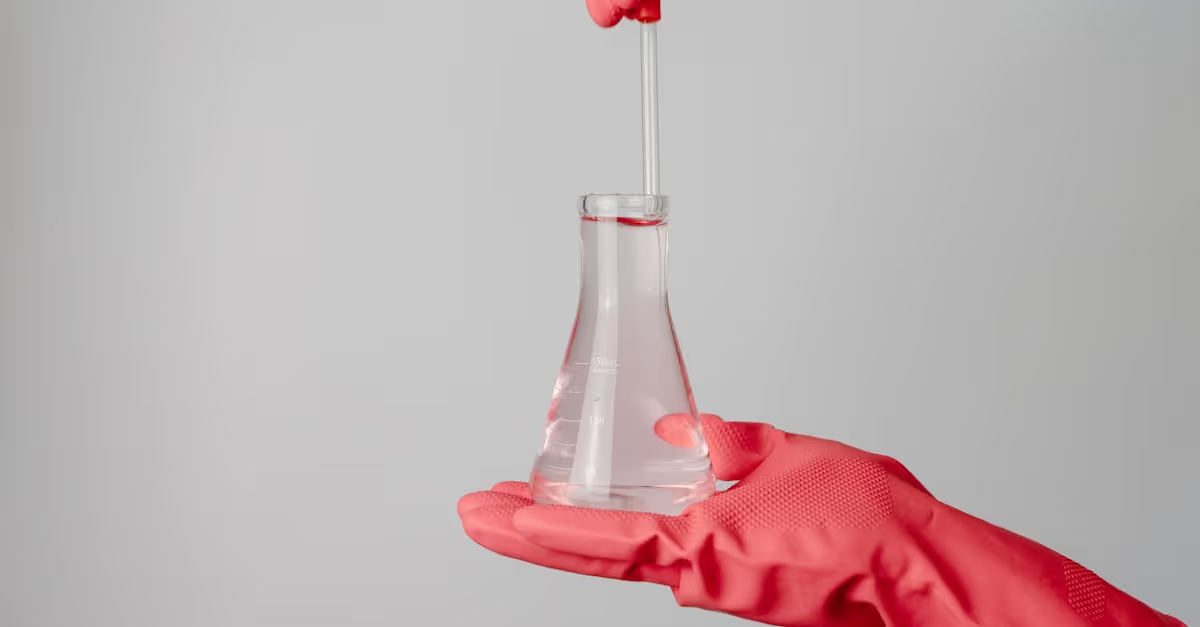Key Takeaways
- Regular pool water testing is essential for maintaining safe and enjoyable swimming conditions, preventing health risks and costly repairs.
- Accurate water chemistry balance (pH, chlorine, alkalinity) ensures a pleasant swimming experience and protects against skin irritation and equipment damage.
- Professional pool water testing services provide precise analyses and tailored solutions, helping pool owners address specific water quality issues effectively.
- The frequency of testing should align with pool usage; weekly, biweekly, or monthly checks can ensure optimal water conditions based on usage patterns.
- Neglecting routine testing can lead to harmful bacteria and algae growth, as well as significant equipment damage, resulting in unexpected repair costs.
- Choosing the right testing service involves evaluating their offerings, expertise, technology, and customer reviews to ensure reliable and effective water management.
When it comes to pool maintenance, water quality is crucial. Did you know that nearly 70% of pool owners overlook regular water testing? This oversight can lead to serious health risks and costly repairs. By investing in professional pool water testing services, we can ensure our swimming environment remains safe and enjoyable.
Regular testing not only helps us monitor chemical levels but also prevents algae growth and equipment damage. With the right testing protocols, we can maintain crystal-clear water and extend the lifespan of our pool. In this guide, we’ll explore the ins and outs of professional pool water testing services and highlight why making this a priority is essential for every pool owner.
Understanding Pool Water Testing
Pool water testing plays a vital role in maintaining pool safety and cleanliness. We face various challenges with pool water quality, and testing regularly can help address these issues effectively.
Importance of Water Chemistry
Water chemistry directly impacts our swimming experience. Proper balance of pH, chlorine, alkalinity, and hardness keeps our pool safe and inviting. Low pH can lead to skin irritation and corrosive damage, while high pH can make chlorine less effective. Monitoring these levels provides a more enjoyable swim environment and helps us avoid costly repairs. Regular testing acts as our preventive measure. It’s easier to maintain balance than to fix major problems down the line. Skipping tests is like ignoring a small leak; it often leads to bigger headaches in the future. Wouldn't it be nice if we could just float in crystal-clear water without worrying about harmful bacteria or algae?
Common Pool Water Contaminants
Contaminants can quickly turn our paradise into a swamp. Common threats include bacteria, algae, debris, and chemicals from swimmers, like sunscreen and sweat. Maintaining water hygiene requires constant vigilance. Each contaminant behaves differently, and some can multiply unchecked if left untested. We can think of it as a team sport, where regular testing helps us tackle these challenges head-on. A few simple tests reveal a lot about our pool's condition. For example, if we notice cloudy water, it might indicate a chlorine imbalance or the presence of algae. Each dip in our pool deserves to be enjoyable, so let’s stay proactive in keeping our water clear and clean. Who wants to swim in a murky mess, right?
Professional Pool Water Testing Services
Professional pool water testing services play a critical role in maintaining the health and longevity of our pools. By collaborating with experts, we equip ourselves with the knowledge necessary for a safe swimming experience. These services offer precise analyses of water samples, revealing levels of pH, chlorine, alkalinity, and contaminants, ultimately leading to better water quality.
Types of Testing Services Offered
- Basic Chemical Testing - Basic services cover essential parameters like pH, chlorine, and alkalinity. These tests lay the foundation for maintaining optimal water balance.
- Advanced Testing - Advanced testing identifies contaminants such as metals, phosphates, and nitrates. If we notice cloudy water or algae growth, this testing targets underlying issues.
- Comprehensive Water Analysis - Comprehensive services combine various tests for a complete picture. We get a thorough assessment and tailored solutions based on findings, making it easier to tackle specific problems.
- Regular Monitoring - Regular monitoring services maintain chemical balance over time. These packages often include scheduled visits where the technicians provide consistent updates and adjustments.
Frequency of Testing Recommendations
Testing frequency varies based on pool usage and environmental factors. Generally, we recommend the following:
- Weekly Testing - Weekly testing suits heavily used pools. This routine keeps chemicals balanced and prevents minor issues from escalating.
- Biweekly Testing - For moderately used pools, biweekly checks are usually sufficient. This frequency helps maintain clarity and safety without overwhelming us.
- Monthly Testing - Monthly testing serves as a good practice for rarely used pools. Seasonal changes and heavy rains may require adjustments, making periodic checks essential.
Benefits of Regular Pool Water Testing
Regular pool water testing offers significant advantages for pool owners. It protects health and maintains an enjoyable swimming experience.
Ensuring Safe Swimming Conditions
Safe swimming conditions hinge on balanced water chemistry. Testing checks pH levels, chlorine content, and alkalinity. When these elements are out of balance, swimmers can experience skin irritation or rashes.
Harmful bacteria and algae can also thrive in improperly managed water. Regular testing helps us spot these issues early, making it easier to take action. Consistent testing promotes a healthy environment, enhancing our overall swimming experience.
Think about it: do we prefer splashing in clear, inviting water or murky, questionable liquid? The answer is simple. Let’s all strive for a refreshing pool that's safe for the whole family.
Preventing Equipment Damage
Neglecting pool water testing can lead to costly equipment damage. Unbalanced water chemistry can corrode pool equipment and reduce its life span. For example, high acidity levels can damage heating systems and pumps.
We save money by testing our pool water regularly. It eliminates the risk of surprise repairs and extends the equipment's lifespan.
Imagine waking up to a pool that looks great, only to discover your filter needs replacing. That’s an expense no one wants. By maintaining optimal water conditions, we avoid repairs and keep our pool equipment running smoothly.
Regular testing becomes our first line of defense against unnecessary damage, bringing us peace of mind and more enjoyable swimming days.
Selecting a Pool Water Testing Service
Choosing a pool water testing service requires careful consideration. By evaluating specific aspects, we can find a solution that fits our needs.
Key Factors to Consider
- Service Offerings: Look for essential services such as chemical testing, contaminant analysis, and comprehensive water assessments. A complete package helps maintain water quality effectively.
- Frequency of Testing: Determine how often testing occurs based on our pool usage. Regular visits—weekly, biweekly, or monthly—support optimal water balance.
- Expertise and Credentials: Check if the service provider has trained technicians. Properly certified professionals increase reliability and accuracy in testing.
- Technology Used: Assess if the service utilizes modern field service management software. Automation can streamline processes, enabling quick response rechecks for chemical levels.
- Customer Reviews: Read reviews from other pool owners. Positive feedback highlights dependable services and can guide our decision.
Questions to Ask Your Service Provider
- What testing methods do you use? Understanding their approach helps gauge accuracy and reliability.
- How do you communicate test results? Effective communication is key for planning appropriate adjustments.
- Do you offer emergency services? Knowing if they provide urgent support ensures we have help when issues arise.
- Can you provide references? Speaking with past clients confirms the service's reputation and effectiveness.
- What software do you use for scheduling appointments? Services that utilize job scheduling software can optimize technician availability.
These questions keep us engaged and informed as we select a professional pool water testing service. Understanding what to expect gives us confidence in maintaining our swimming environment.
Conclusion
Regular pool water testing is essential for maintaining a safe and enjoyable swimming environment. By investing in professional services, we can ensure our pool water remains balanced and free from harmful contaminants. This proactive approach not only protects our health but also extends the lifespan of our pool equipment.
With the right testing frequency and professional guidance, we can prevent costly repairs and enjoy crystal-clear water. Let’s prioritize regular testing to safeguard our swimming experience and promote a healthy pool environment for ourselves and our loved ones. Embracing these practices will lead to countless enjoyable swims for years to come.
Frequently Asked Questions
Why is water quality important in pool maintenance?
Maintaining water quality is crucial for health and safety. Poor water quality can lead to skin irritation, unpleasant swimming conditions, and costly repairs. Regular testing helps monitor chemical levels, preventing issues like algae growth and ensuring clean, safe water for swimmers.
How often should I test my pool water?
The frequency of testing depends on pool usage. For heavily used pools, test weekly; for moderately used pools, test biweekly; and for pools seldom used, test monthly. Regular testing ensures balanced water chemistry and helps prevent potential problems.
What are common pool water contaminants?
Common contaminants include bacteria, algae, and debris. These pollutants can compromise water hygiene and create unsafe swimming conditions. Regular testing and prompt action are necessary to address these issues, ensuring a safe and enjoyable swimming experience.
What professional pool water testing services are available?
Professional testing services range from basic chemical testing to advanced contaminant analysis and regular monitoring. These services can help pool owners maintain balanced water chemistry, prevent algae growth, and prolong the lifespan of pool equipment.
How can I choose a pool water testing service?
When selecting a service, consider their expertise, testing methods, frequency of testing, technology used, and customer reviews. Ask about emergency services, communication of results, and scheduling options to ensure confidence in your provider and their ability to maintain your pool.






